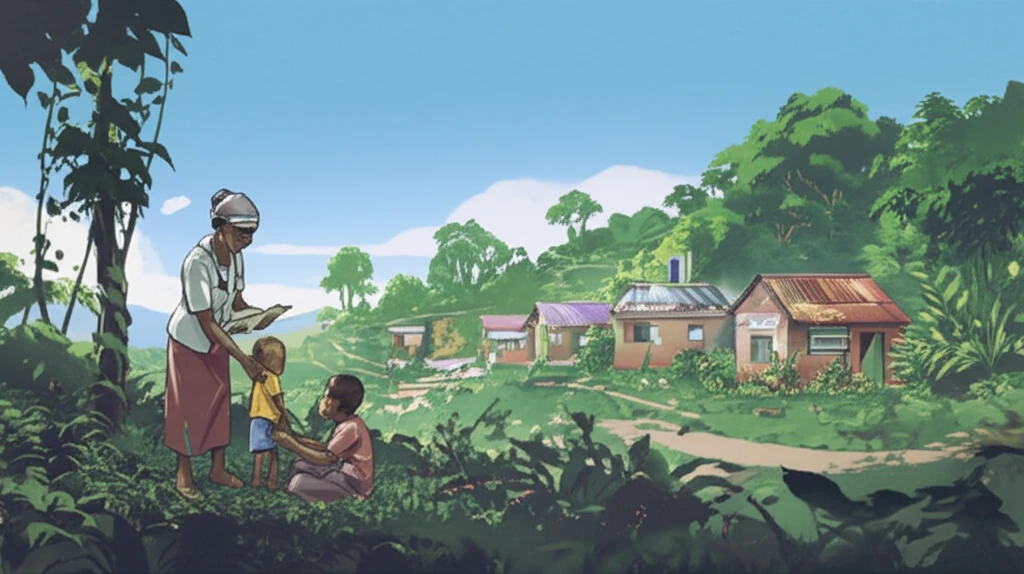
Can Community Health Initiatives Save Lives? How Uganda is Tackling Infant Mortality
"A deep dive into a nurse-led program in rural Uganda reveals the power of community health workers in reducing infant mortality and improving child health outcomes."
For many low-income countries, reducing infant mortality rates remains a critical challenge. Uganda, like many nations in sub-Saharan Africa, has historically struggled with high infant mortality rates, but innovative, community-based initiatives are offering new pathways to progress. These programs recognize that healthcare extends beyond hospital walls and that empowering local communities is vital for sustainable change.
One such initiative, the Bwindi Community Hospital (BCH) in southwestern Uganda, implemented a nurse-led community project aimed at tackling child-health issues head-on. This program provides a fascinating case study of how targeted interventions, delivered by dedicated healthcare professionals and community volunteers, can significantly impact infant health.
This article dives into the workings and outcomes of this impactful project, exploring how community health workers and nurses collaborate to bring essential healthcare services to families in remote areas. We'll examine the key strategies employed, the challenges faced, and the remarkable results achieved in the fight against infant mortality.
The Power of Community: How the Bwindi Project Works

The Bwindi project was designed around a simple yet powerful idea: bringing healthcare directly to the people. Recognizing that many families in the region face significant barriers to accessing healthcare facilities, the project focused on empowering nurses and Community Health Volunteers (CHVs) to deliver essential services within their own communities.
- Antenatal and Postnatal Care: Nurses conducted home visits to assess the health of pregnant women and new mothers, providing essential education and support.
- Community Health Volunteers (CHVs): CHVs gathered data on pregnant women and newborns, provided basic health advice, and promoted healthy behaviors.
- Referral System: CHVs identified at-risk infants and mothers and referred them to health facilities for further care.
Lessons Learned and the Path Forward
The Bwindi project offers valuable insights into the potential of community-based health initiatives to improve infant health outcomes in resource-limited settings. By empowering local healthcare workers, delivering essential services directly to families, and fostering strong community partnerships, the project demonstrated that significant progress is possible, even in the face of considerable challenges. As the world strives to achieve Sustainable Development Goal 3, the lessons learned from Bwindi can serve as a blueprint for other communities seeking to reduce infant mortality and build a healthier future for their children.
